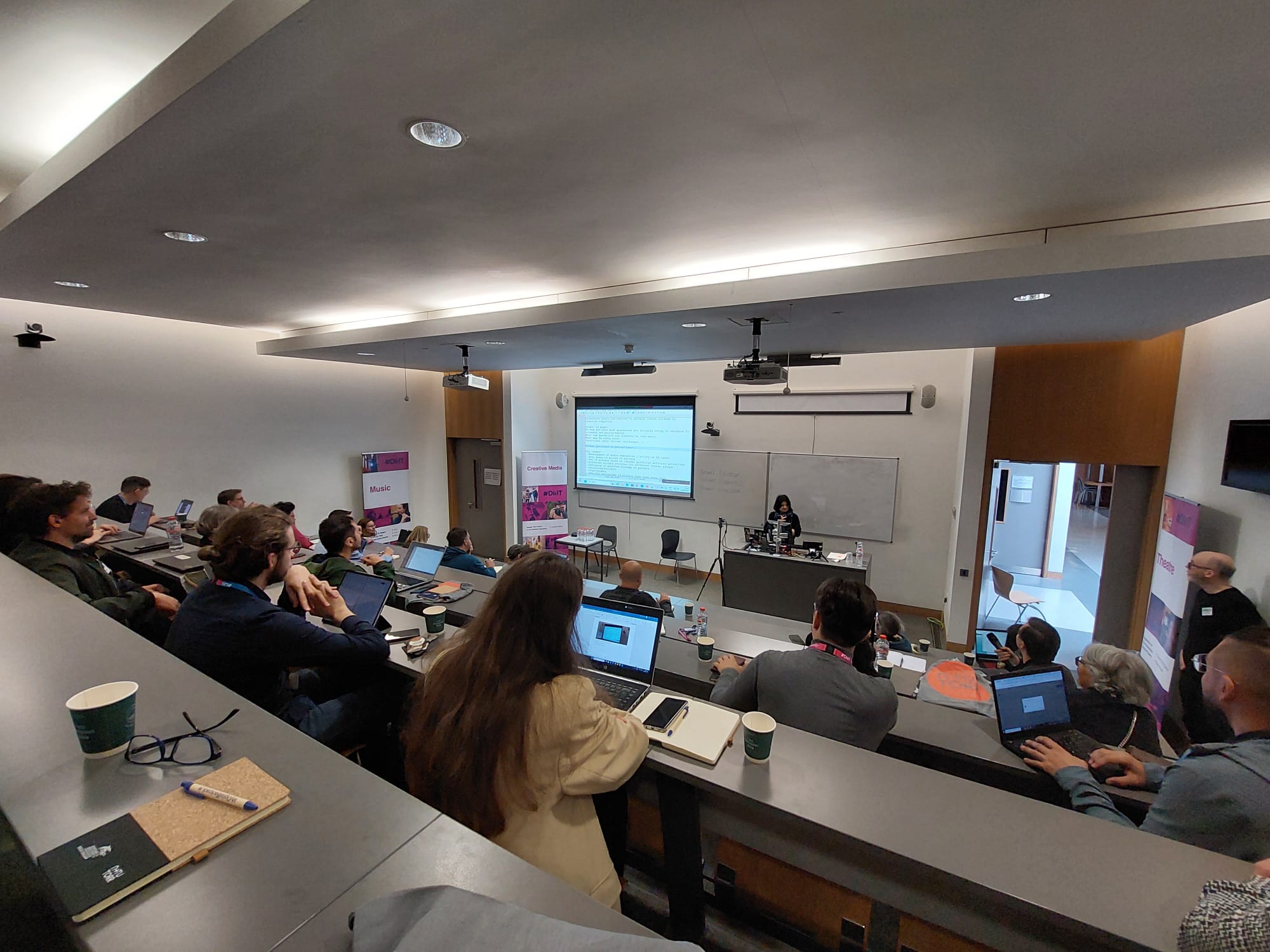The 2nd GRADE Conference, focused on grassroots digital culture, took place on June 12-13, 2024, at the Creative Arts Research Centre, Dundalk Institute of Technology (DkIT), Ireland. Hosted in the PJ Carroll Building, this two-day event explored the intersections of digital heritage, creative computing, and cultural preservation through keynotes, panels, workshops, and discussions.
Day 1 Highlights – June 12, 2024
The event began with registration at 09:30, followed by a Working Group 2 discussion on grassroots privacy practices in creative computing. Keynote speaker Steve Collins, a renowned academic and entrepreneur, shared insights into his extensive work in AI, VR, and the gaming industry. Simultaneously, a Repair Café session took place outside the DkIT Canteen, offering hands-on workshops on electronics repair. Later in the day, attendees participated in a workshop on creating a Space Invaders clone using Pico-8 and engaged in a panel discussion on Atari’s influence in Europe. The day concluded with a street art walking tour in Dundalk and dinner at McGeogh’s Bar and Restaurant.
Day 2 Highlights – June 13, 2024
Day two opened with a discussion on the histories and futures of born-digital cultural heritage, led by researchers Melanie Swalwell, Helen Stuckey, and Cynde Moya. Following a panel on cataloging digital cultural heritage, Winnie Soon, an award-winning artist and researcher, delivered the afternoon keynote, focusing on the cultural implications of digital infrastructure. The conference concluded with updates from the GRADE project, followed by a closing social event in Blackrock village.
Keynote Speakers
- Steve Collins: A key figure in AI, VR, and game industry technology, Collins co-founded Havok and mentored numerous startups. His talk highlighted innovations in tech and future developments.
- Winnie Soon: An Associate Professor of Art and Technology at UCL, Soon’s presentation addressed digital censorship, open-source culture, and the societal impact of coding.
The 2nd GRADE Conference offered a blend of academic discussions, practical workshops, and engaging social activities, providing a valuable platform for scholars and practitioners interested in digital culture, computing, and cultural heritage.

